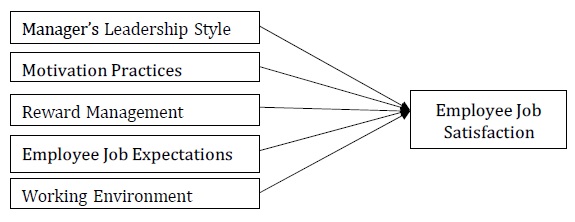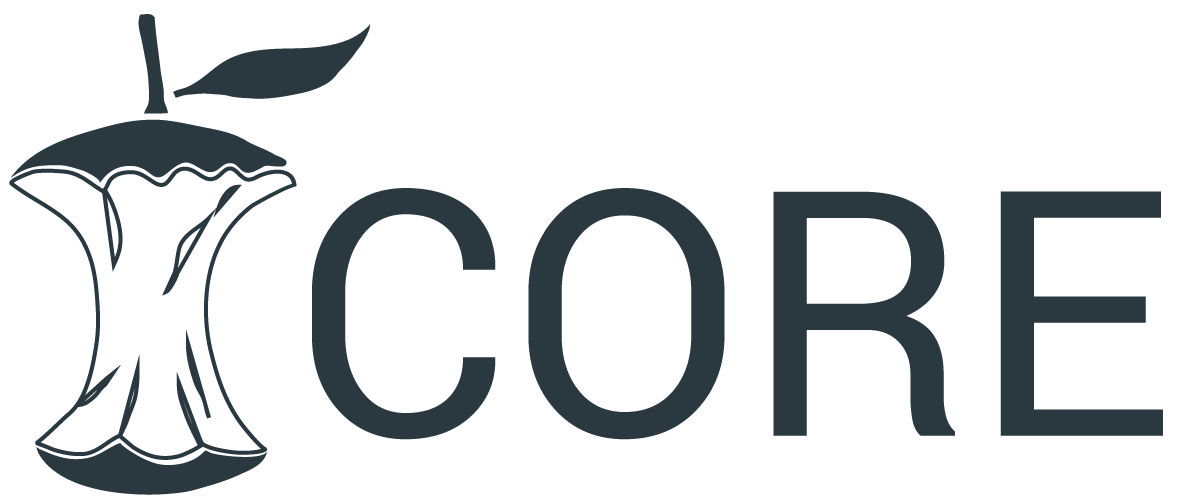How Job Satisfaction is Influenced by Work Place Environment: An Empirical Study
DOI:
https://doi.org/10.54741/mjar.3.5.6Keywords:
job satisfaction, communications, employees, opportunities, public sectorAbstract
This study refers to how job characteristics, work environment, pay satisfaction, and advancement opportunities influence employee’s job satisfaction. The study results showed that job clarity, effective communications with management, a participatory management approach, organizational support of career development, opportunities for advancement, and family-friendly policies are all significant variables affecting the job satisfaction of employees. The effect of pay satisfaction on employee job satisfaction was not significant. This study also found gender differences in factors affecting employee’s job satisfaction.
The purpose of this research was to measure the effect of work motivation on employee job satisfaction in Madhyanchal Vidyut Vitran Nigam Limited (MVVNL), Lucknow. A Self-administered questionnaire consisting of several measures was employed to gather data from the technical and supporting employees who work in different sections of the MVVNL like the distribution, maintenance, office, area chief engineer and sub Stores of Lucknow. The gathered data were utilized to test the model using the PLS-SEM approach with Smart PLS. The results showed that the essential features of work motivation are manager’s leadership styles, motivation practices, employee job expectations, reward management system and working environment, whereas the identified consequence was employee job satisfaction. All five variables had a positive effect on job satisfaction and among them, employee job expectations and manager’s leadership style had the highest influence and the reward management system had the least influence on job satisfaction. Further, this study offers thoughts for managers by pinpointing the critical factors influencing that motivate employees in MVVNL.
Downloads
References
Agho, Mueller, & price. (1993). Job satisfaction Australian journal of government employees. Public Personnel Management, 31(3), 343-358.
Arnolds, C.A., & Boshoff, C. (2001). The challenge of motivating top management: A need satisfaction perspective. Journal of Industrial Psychology, 27(1), 39-42.
Bhatti, K., & Qureshi, T. (2007). Impact of employee participation on job satisfaction, employee commitment and employee productivity. International Review of Business Research Papers, 3(2), 54-68.
Buzawa. (1984). Handbook of industrial and organizational leadership, and level of education. Eur. J. Sci. Res.,vol. 22(2): 286-295.
Ellickson, M.C., & Logsdon, K. (2002). Determinants of job satisfaction of municipal government employees. Public Personnel Management, 31(3), 343-358.
Friedlander, F., & Margulies, N. (1969). Multiple impacts of organization climate and individual values system upon job satisfaction. Personnel Psychology, 22, 177-183.
Greenberg ,J., & Baron, R. A. (1993). Behaviorin organizations. (4th ed.). Needham Heights, MA: Allyn and Bacon.
Dunbar, Griffin, & McGill. (1978). Job satisfaction and team work: the role of supervisor support. J. Organ. Behav., 22, 537-550.
Hair, J., Hult, G., & Ringle, C., et al. (2017) A primer on partial least squares structural equation modeling (PLS-SEM). (2nd ed.) Thousand Oaks: Sage Publications.
Herzberg, F. (1966). Work and the nature of man. London: Staple Press.
Herzberg (1959). Organization climate and individual values system upon job satisfaction, Personnel Psychology, 22, 177-183.
Hackman & Oldham. (1975). Preference between Salary or Job Security Increase. International Journal of Manpower, 11(7).
Lease, S. H. (1998). Annual review, 1993–1997: Work attitudes and outcomes. Journal of Vocational Behaviour, 53(2), 154–183.
Locke, E. (1976). The nature and causes of job satisfaction. In M. D. Dunnette (Ed.). Handbook of industrial and organizational psychology, pp.1297–1349. Chicago: Rand McNally.
Locke, E. A. (1980). The nature and causes of job satisfaction. In M.D Dunnette (Ed.), Handbook of Industrial and Organizational Psychology, Chicago: Rand McNally, pp.1297-1349.
Reiner, & Zhao, (1999). Preference between Salary or Job Security Increase. International Journal of Manpower, 11(7), 43-62.
Maslow, A.H. (1954). Motivation and personality. New York: Harper & Row.
Mulinge, M., & Muller, C.W. (1998). Employee job satisfaction in developing countries: The case of Kenya. World Dev., 26(12), 2181-2199.
Parvin, M.M., & Nurul Kabir, M.M. (2011). Factors affecting employee job satisfaction of pharmaceutical sector. Australian Journal of Business and Management Research, 1(9), 113-123.
Mc Namara (n.d.). Job satisfaction and team work: the role of supervisor support. J. Organ. Behav., 22, 537-550.
Politis, J.D. (2001). The relationship of various leadership styles to knowledge management. Leadership and Organization Development Journal, 22(8), 354-64.
Scanduraa, T.A. & Williams, E.A. (2004). Mentoring and transformational leadership: The role of supervisory career mentoring. J. Vocat. Behav., 65, 448-468.
Schermerhorn. (1993). Promotion and physical conditions of the work environment, as well as organizational structure. Personnel Rev., 31(4), 402-431.
Spector, P.E. (1997). Industrial & organizational psychology. (2nd ed.). New York: John Wiley & Sons.
Vandenberg & Lance, (1992). According to Bradley and Brian. (2003). Preference between salary or job security increase. International Journal of Manpower. 11(7).
Wanous, J.P., & Lawler, E.E. (1972). Measurement and meaning of job satisfaction. Journal of Applied Psychology, 95-105.
Zobal, C. (1998). The ideal team compensation system – An overview: Part I. Team Perform. Manage., 4(5), 235-249.

Downloads
Published
How to Cite
Issue
Section
License
Copyright (c) 2023 Shiv Kumar Tripathi, Dr. Ramesh Kumar Chaturvedi

This work is licensed under a Creative Commons Attribution 4.0 International License.
Research Articles in 'Management Journal for Advanced Research' are Open Access articles published under the Creative Commons CC BY License Creative Commons Attribution 4.0 International License http://creativecommons.org/licenses/by/4.0/. This license allows you to share – copy and redistribute the material in any medium or format. Adapt – remix, transform, and build upon the material for any purpose, even commercially.









